
You might have heard stories of women using olive oil on their hair as a moisturizing mask, but it’s equally effective if less well known as a skincare ingredient. Although it doesn’t target acne the way zit creams do, olive oil can be used as part of a total skincare system that keeps skin healthy and less prone to certain types of acne.
Misconceptions
Harsh chemical zit creams and astringents douse skin with chemicals like benzoyl peroxide and salicylic acid. People with acne often use harsh cleansers at the same time, intent on removing all excess oil. Celebrity skin care specialist Mario Badescu warns against this kind of cleansing. He says that overcleansing with “high detergent products” can cause dryness, irritation and can actually stimulate your skin’s oil glands, leading to even more acne.
Features
Carol Firenze, author of “The Passionate Olive,” praises olive oil as a moisturizer. A natural lipid, olive oil’s chemical composition is very similar to sebum, your body’s natural oil. Your body will absorb the oil easily and naturally, leaving skin softer and smoother. The oil keeps your skin from losing moisture, contains antioxidants, and helps your skin produce collagen and elastin, two fibers necessary for plump, young-looking skin.
Benefits
Using an olive oil soap cause less skin irritation and more retained moisture than you get when using a traditional chemical-laden acne soap or cleanser. If your acne is caused by cleansing irritation or excess dryness, an olive oil soap may reduce or eliminate your skin problems. Firenze writes that olive oil soap is gentle enough for sensitive skin, too.
Types
Numerous brands of commercial olive oil soap are available online and at stores. Two well-known retailers offering olive oil soap include Kiss My Face and L’Occitane en Provence. Kiss My Face offers a pure olive oil soap as well as variants that include olive oil plus other skin-soothing ingredients like lavender, verbena, aloe or green tea. L’Occitane en Provence harvests organic olives in France to produce cleansers, toning mists, face masks and face lotions. Firenze recommends Savon de Marseille, still made according to the strictures of a 1688 French law safeguarding the ingredients’ purity.
Expert Insight
According to skin care guru Mario Badescu, exfoliating is a key step in the fight against acne. Exfoliating clears away dead skin cells that clog your pores; if you skip this step, those dead cells can lead to more acne as the clogged skin becomes infected. Although you never want to exfoliate directly over a pimple and risk popping it, try exfoliating with an olive oil scrub. Firenze recommends mixing ½ cup extra virgin olive oil with 1 tbsp. sea salt.
Related Articles

Acne Ingredients to Avoid
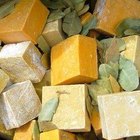
How Does Homemade Soap Compare to ...

What Are the Benefits of Tea Tree Soap?

List of Soaps for Acne

Nivea Q10 Moisturizer Vs. Aveeno ...

How to Remove the Smell of Cologne From ...

The Benefits of Castile Soap
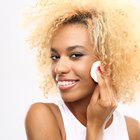
Proactiv Vs. Murad Acne Complex

How to Get Rid of All the Tiny Embedded ...

Baby Shampoo & Acne

DIY Soothing Chamomile Face Mask

Pine Tar Soap for Psoriasis
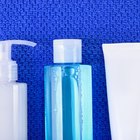
Things That Work Besides Proactiv
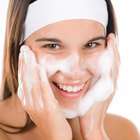
Acne Free vs. Proactiv
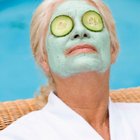
How to Exfoliate for Rosacea
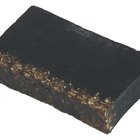
About African Black Soap

Benefits of Apricot Scrub

Can Salicylic Acid & Sulfur Soap Be ...

Benefits of Green Tea Soap
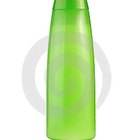
What Is Shampoo Used for?
References
Writer Bio
Jenni Wiltz's fiction has been published in "The Portland Review," "Sacramento News & Review" and "The Copperfield Review." She has a bachelor's degree in English and history from the University of California, Davis and is working on a master's degree in English at Sacramento State. She has worked as a grant coordinator, senior editor and advertising copywriter and has been a professional writer since 2003.
Photo Credits
olive verdi image by Marco from Fotolia.com